As Daughters of the Cross, and Apostolic Religious, we are called to faithfully incarnate our Charism in our Apostolic Life.
“Unless a grain of wheat falls and dies, it remains alone; but if it dies, it yields a mighty harvest.”
A brief encounter with some of the early works of the Congregation, during the life time of our Foundress, Blessed Marie Thérèse will give us a deeper insight into how the seed of the Charism was firmly planted into apostolic life, and how the sap of its Spirit is the life force of the Congregation.

Mother Marie Thérèse’s passion for education ignited a global movement, shaping the future by educating the poor, especially girls. Her vision of learning infused with love, respect, and moral guidance built a foundation of creativity, critical thinking, and leadership that continues to inspire. Through her schools, she empowered minds and hearts, spreading the light of knowledge across continents. The first schools were founded in 1820, and her legacy continues to flourish worldwide.
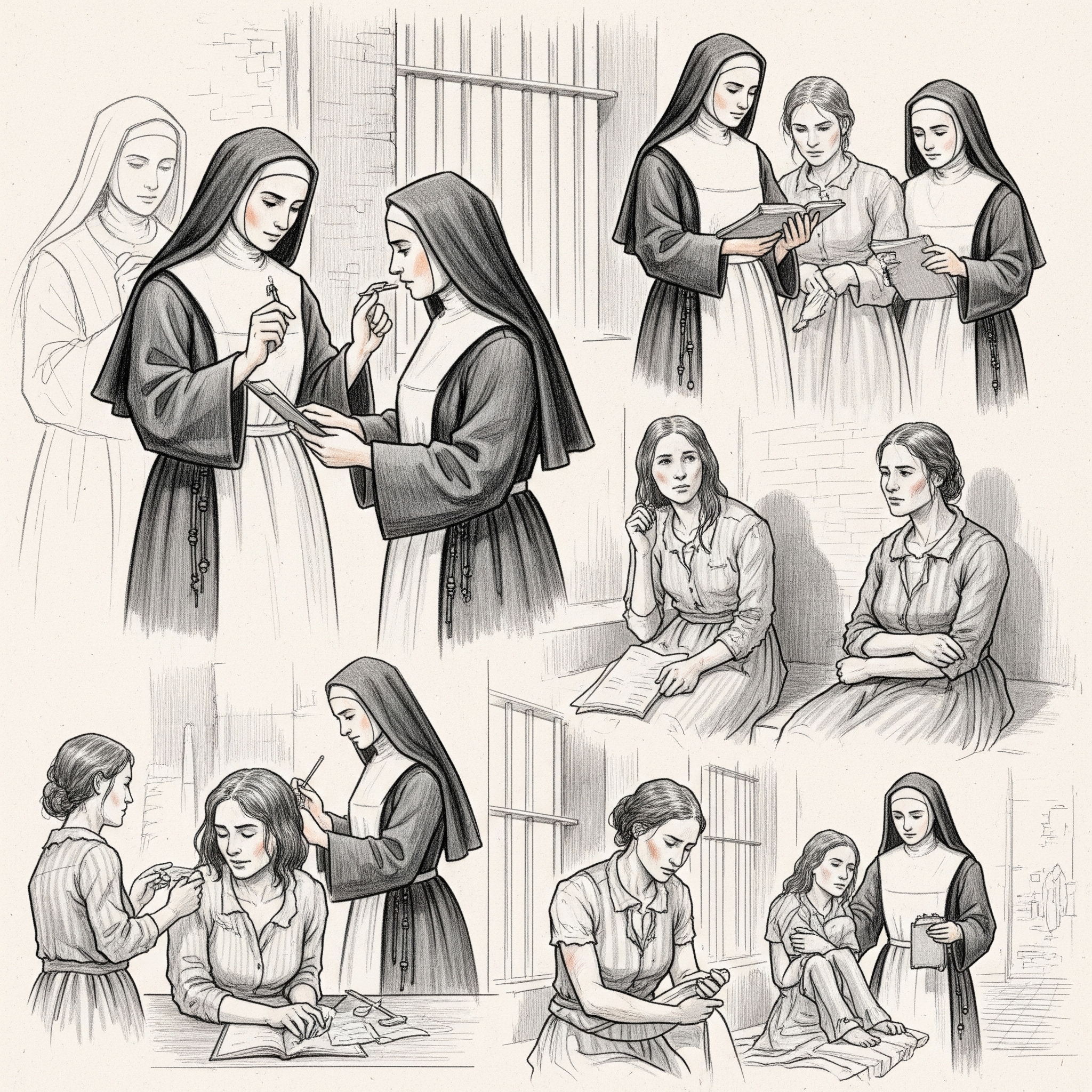
When invited into prison ministry in 1841, Mother Marie Thérèse saw it as a privilege to encounter Christ in the most ostracized / marginalized. She transformed the prison into a place of healing through compassion, cleanliness, and kindness. Her efforts in separating juveniles from adults became a model for prisons worldwide, showcasing the power of dignity and care.
In 1842, Mother Marie Thérèse’s commitment to love and service led her to oversee a hospital for women suffering from the effects of their tragic profession. With compassion and devotion, she cared for them as souls worthy of God’s love, demonstrating the deep connection between physical and spiritual healing. Her work continued in the hospital unit until 1879.
In 1843, the Sisters took charge of the Reckheim workhouse, turning it into a place of peace and transformation. Through patience, compassion, and prayer, they earned the respect of even the most difficult residents, proving that love and care can bring change even in the most challenging environments. The work at Reckheim continued until 1850.
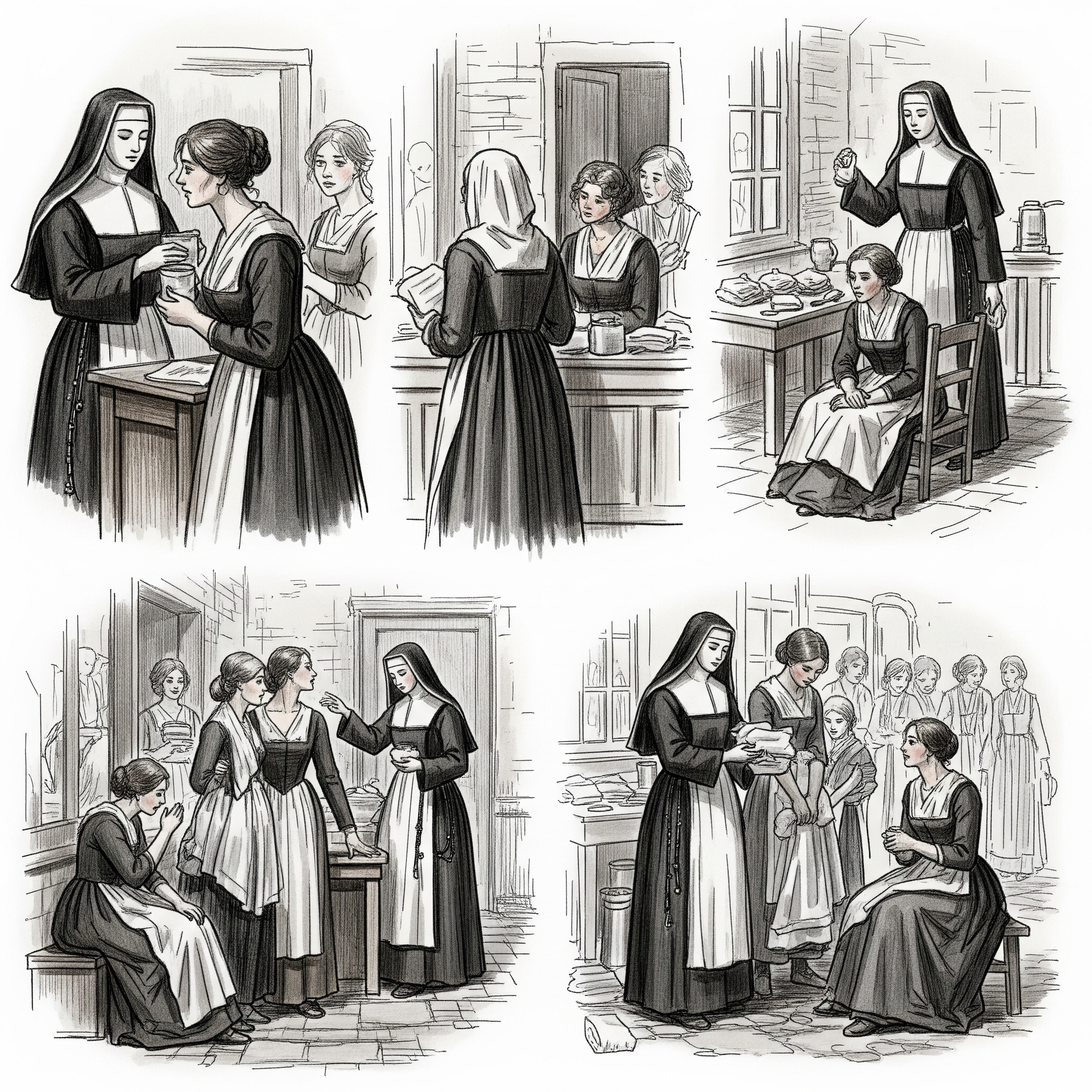
In the 1840s Mother Marie Thérèse understood the need for a safe haven for women released from prison, offering them a place to rebuild their lives. The Refuge became a sanctuary where these women found not only shelter but also the opportunity to rediscover their worth, dignity, and a new path forward.
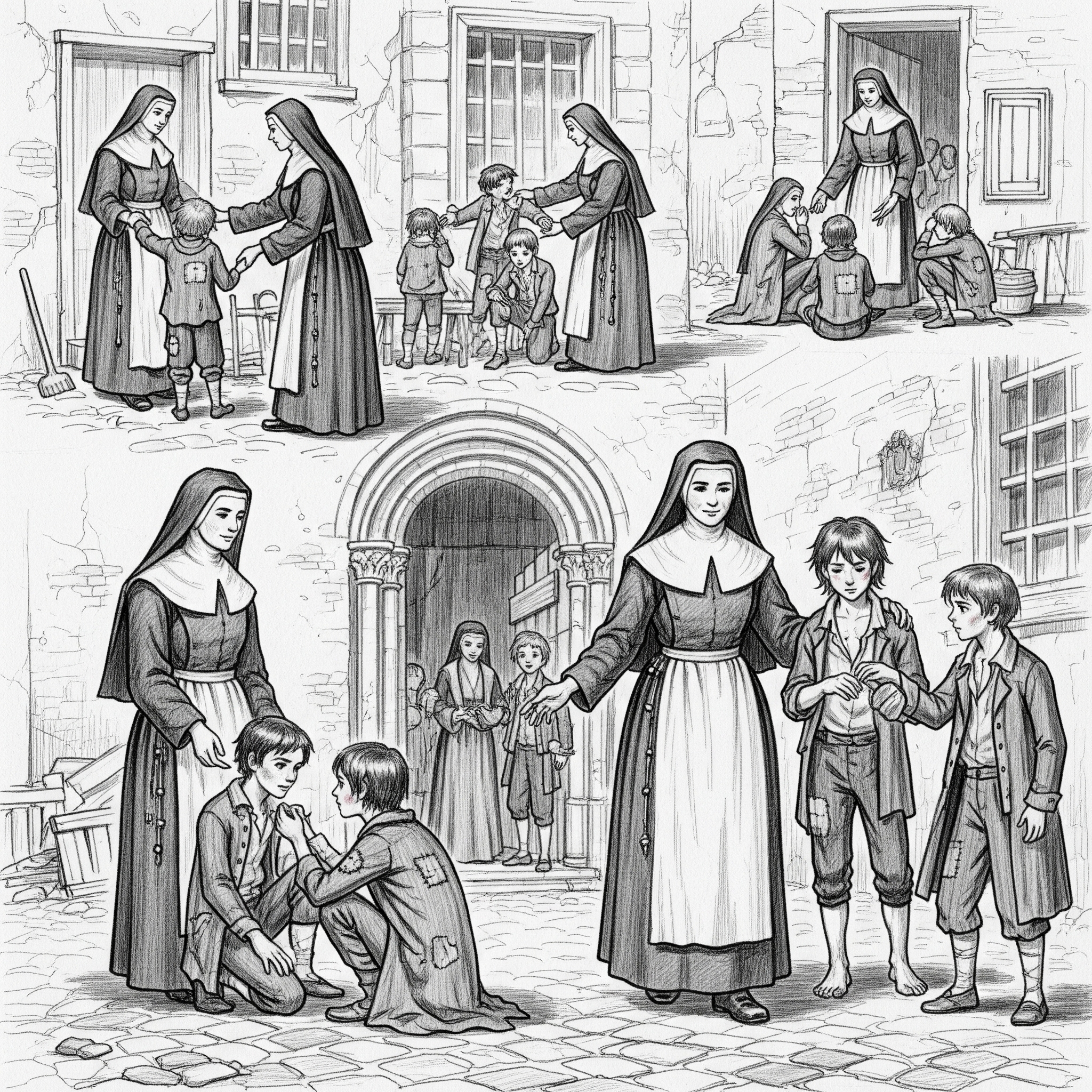
In 1845, Mother Marie Thérèse’s vision of a separate space for young offenders led to the creation of the first House of Correction for young delinquents in Europe. Her emphasis on education, discipline, and compassion redefined the approach to juvenile rehabilitation, offering these young individuals a path toward redemption. This innovation became a model for prisons in Europe and later worldwide.
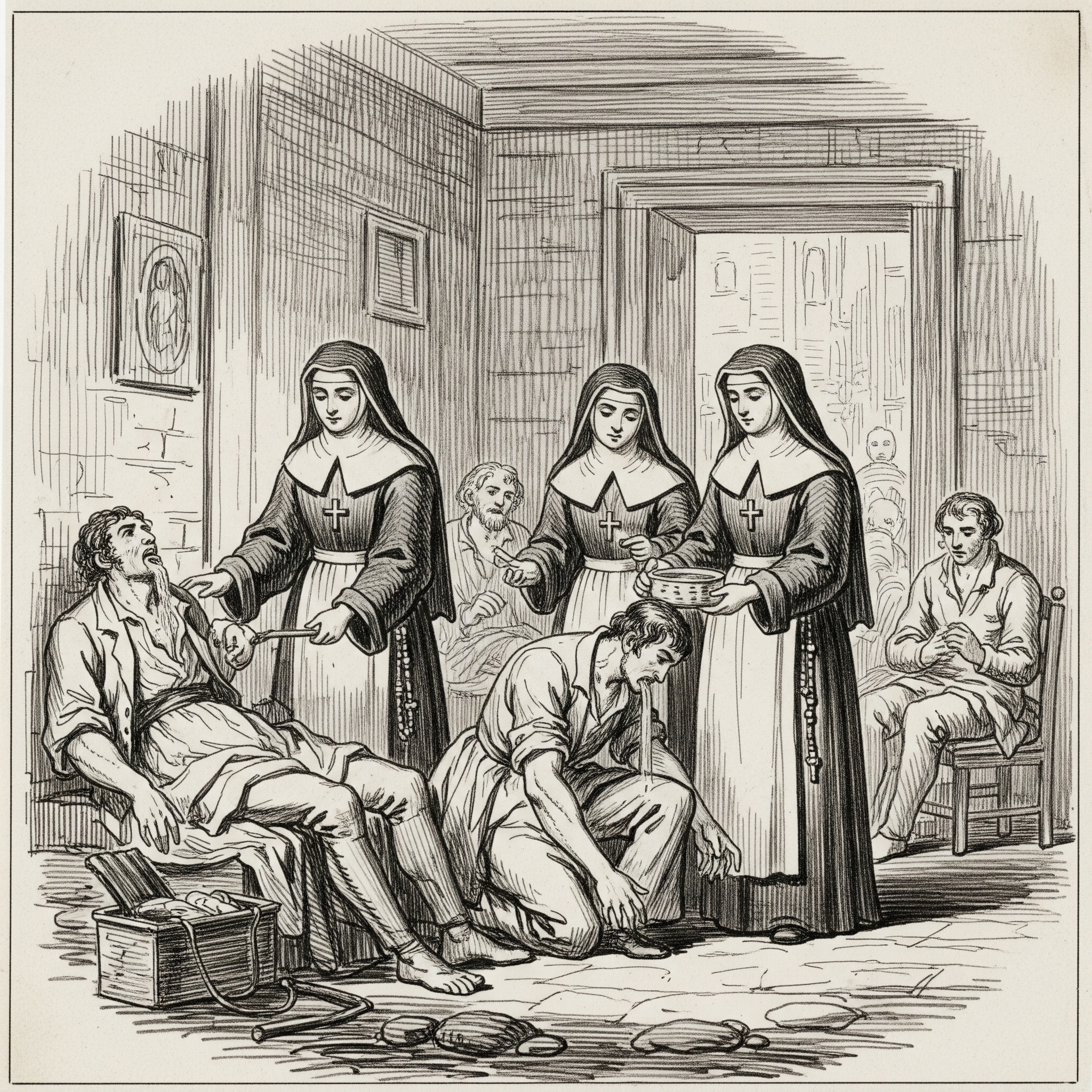
During the 1849 cholera outbreak, Mother Marie Thérèse’s Daughters risked their lives to care for the sick, embodying selfless love in the face of death. Their bravery and compassion earned them recognition and cemented their place as beacons of hope in times of crisis. The Sisters continued their care through subsequent epidemics such as smallpox and typhoid in 1851.
In 1866 and again in 1870 during the Prussian-Austrian and Franco-German Wars, Mother Marie Thérèse sent her Daughters to the battlefields to minister to the wounded and dying soldiers. Their courage, selflessness, and unwavering faith in the face of suffering earned them admiration and gratitude, exemplifying the ultimate act of love and service. Their work continued during both wars and resulted in certificates of appreciation and recognition from civil and military authorities.
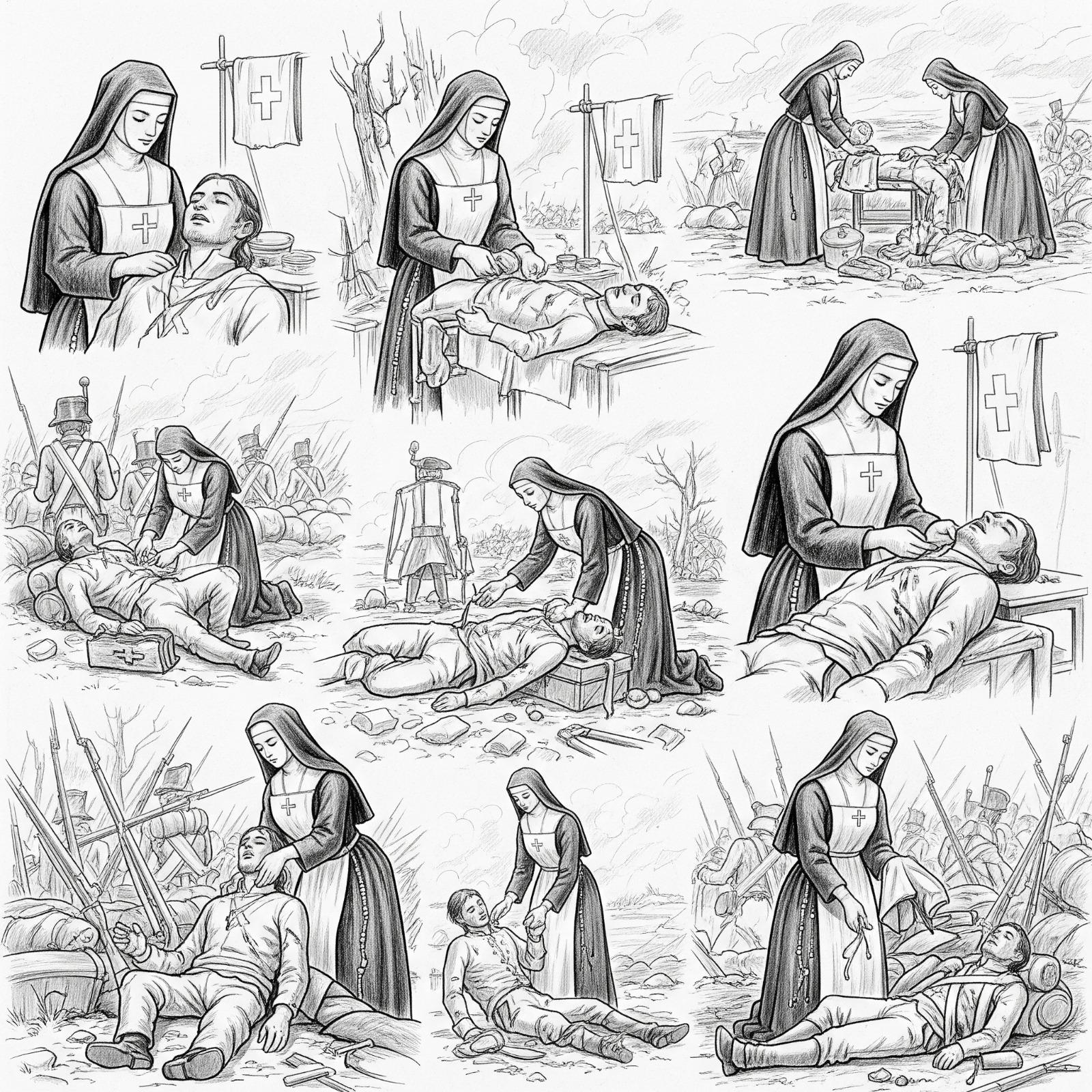
©2025 Daughters of the Cross. All Rights Reserved.
– Designed By Divine Agency